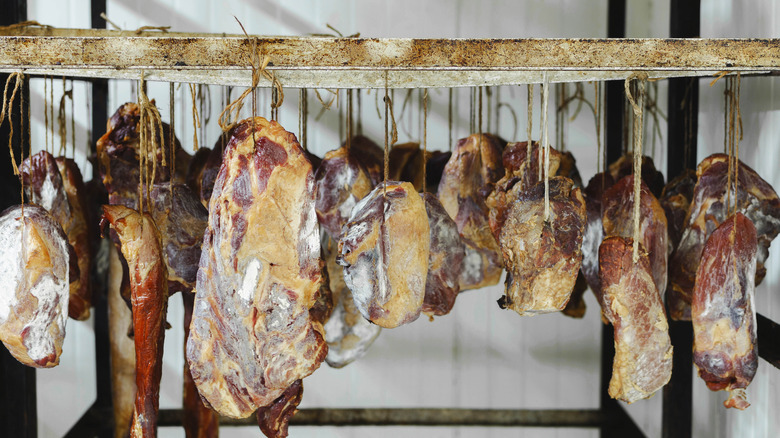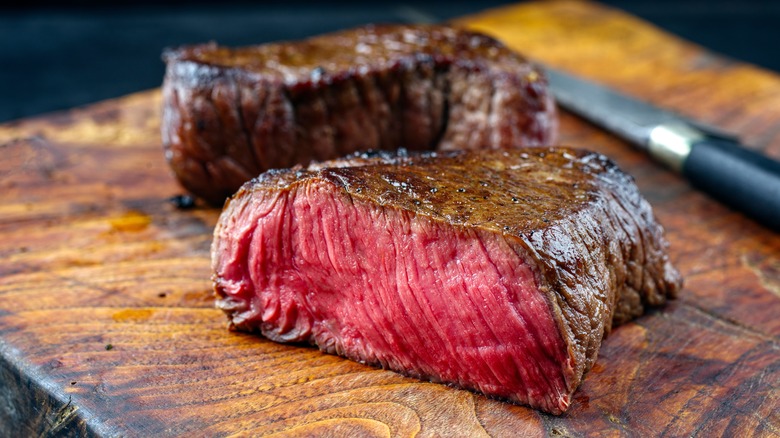Why You Should Always Get Dry-Aged Beef From A Butcher
Dry-aging beef is an intricate process where you intentionally decay a slab of meat to get it nice and moldy. Aerobic bacteria get inside the meat, which in turn break down molecular bonds that pull out unique flavors and textures throughout the cut. Dry-aging is a controlled rotting process, and while that doesn't sound appetizing, it yields delicious results for meat lovers.
Dry-aging requires a good cut of meat and a lot of expertise, you want to make sure the process is done up to code. We spoke to the chef ambassador for Certified Angus Beef and owner of both FoxFire and Copper Fox, K.C. Gulbro, to get his advice on where to go when looking for dry-aged beef. Gulbro said, "I would suggest going to your butcher shop or meat counter. A good butcher will mark and keep your meat protected as long as you wish. They are trained and licensed in food safety and preparation. If the meat spoils, they will replace it, protecting your wallet."
Why dry-aging is tough to do at home
Dry-aging beef can take quite a bit of pre-planning, not to mention the higher price point of a piece of dry-aged meat, but at the end of the day it's totally worth it. Gulbro says dry aging produces a cut of meat that's richer in complex flavors and gives you a more tender texture because a lot of the muscle has broken down in the process. Dry-aging requires a humidity-controlled environment to evenly dry out the meat and keep hazardous pathogens like salmonella out of the meat. It's certainly something you can try at home, as long as you have the right equipment and are confident in what you're doing.
Once you find a butcher you like and get your hands on a beautiful cut of dry-aged beef, the recipe opportunities are plentiful. You can prepare and serve a piece of dry-aged beef in the same way you would a fresh cut of meat, so give your tried-and-true recipes a go. We recommend trying out dry-aged beef in our easy beef Wellington recipe — you don't even have to make any adjustments using dry-aged beef.

